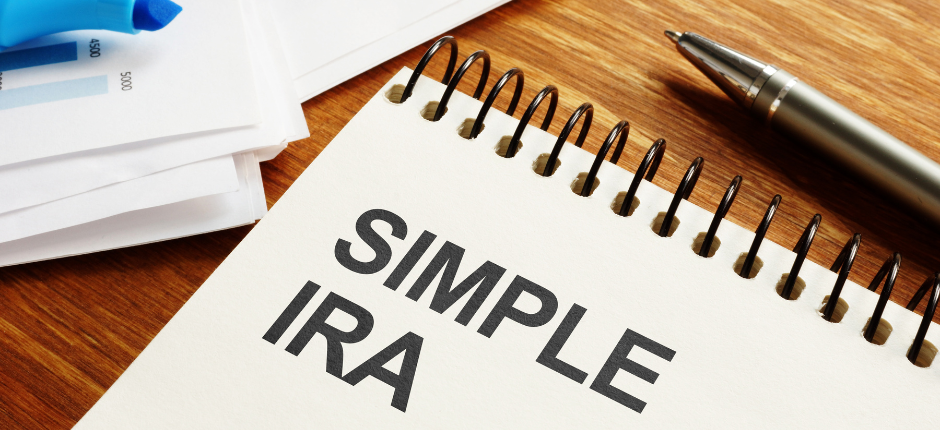Are you a small business owner looking for ways to help your employees save for retirement? If so, you may want to consider offering a SIMPLE IRA plan.
A SIMPLE IRA (Savings Incentive Match Plan for Employees Individual Retirement Account) is a retirement plan specifically designed for small businesses. Business entities, including self-employed persons, partnerships and corporations, as well as certain tax-exempt organizations, can establish SIMPLE IRA plans for their employees so long as the business has 100 or fewer employees.
Under a SIMPLE IRA plan, employers are required to make either a matching contribution of up to 3% of an employee’s compensation or a non-elective contribution of 2% of an employee’s compensation. Employees can contribute up to $16,000 per year for 2024, with an additional catch-up contribution of $3,500 for those aged 50 and over.
One of the key advantages of a Simple IRA is its simplicity. It has lower administrative and start-up costs compared to other retirement plans. Additionally, employers can deduct contributions made to their employees’ SIMPLE IRA as a business expense and because the contributions are made to an IRA, an employee’s earnings inside the account are tax deferred until withdrawal. Also, the employee is always 100% vested in (or, has ownership) all SIMPLE IRA money.
How does the SIMPLE IRA plan work?
Here are two examples provided by the Internal Revenue Service:
Example 1
Elizabeth works for the Rockland Quarry Company, a small business with 50 employees. Rockland has decided to establish a SIMPLE IRA plan for its employees and will match its employees’ contributions dollar-for-dollar up to 3% of each employee’s compensation. Under this option, if a Rockland employee does not contribute to his or her SIMPLE IRA, then that employee does not receive any matching employer contribution.
Elizabeth has a yearly compensation of $50,000 and contributes 5% of her compensation ($2,500) to her SIMPLE IRA. The Rockland matching contribution is $1,500 (3% of $50,000). Therefore, the total contribution to Elizabeth’s SIMPLE IRA that year is $4,000 (her $2,500 contribution plus Rockland’s $1,500 contribution). The financial institution holding Elizabeth’s SIMPLE IRA has several investment choices and she is free to choose which ones suit her best.
Example 2
Austin works for the Skidmore Tire Company, a small business with 75 employees. Skidmore has a SIMPLE IRA plan for its employees and will make a 2% nonelective contribution for each of them. Under this option, even if a Skidmore employee does not contribute to his or her SIMPLE IRA, that employee would still receive an employer contribution to his or her SIMPLE IRA equal to 2% of compensation.
Austin’s annual compensation is $40,000. Even if Austin does not contribute this year, Skidmore must still make a contribution of $800 (2% of $40,000).
***The above hypothetical examples are for illustration purposes only. Actual investor results will vary.
Overall, SIMPLE IRA plans can provide a significant source of income at retirement by allowing employers and employees to set aside money in retirement accounts. It can also help small businesses attract and retain talented employees by offering a valuable benefit that shows the company values its employees’ long-term financial success. A SIMPLE IRA plan could be just what your small business is looking for. As you consider retirement savings options, you might find it beneficial consult with a financial advisor to determine the best retirement plan for you and/or your business.
The information has been obtained from sources considered to be reliable, but we do not guarantee that the foregoing materials are accurate or complete. This material is being provided for information purposes only and is not a complete description, nor is it a recommendation. Any opinions are those of Gainspoletti Financial Services and not necessarily those of Raymond James. Investing involves risk and you may incur a profit or loss regardless of strategy selected. Every investor’s situation is unique and you should consider your investment goals, risk tolerance and time horizon before making any investment. Raymond James and its advisors do not offer tax or legal advice. You should discuss these matters with the appropriate professional.

